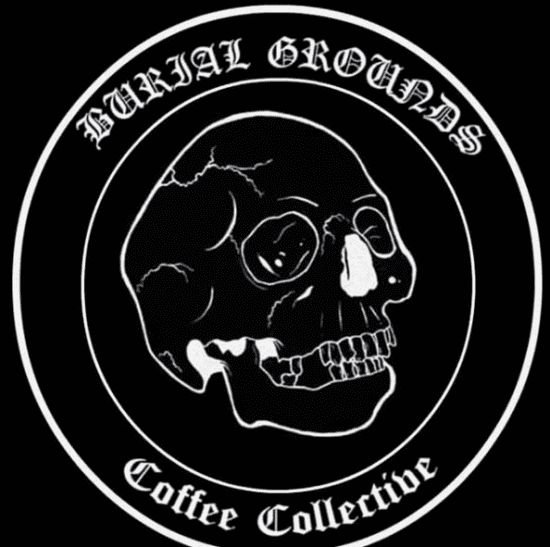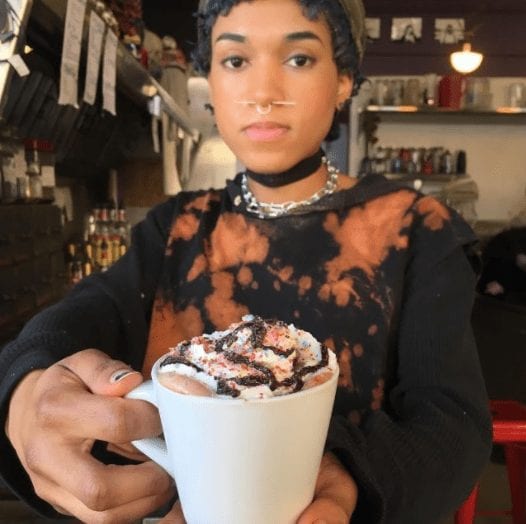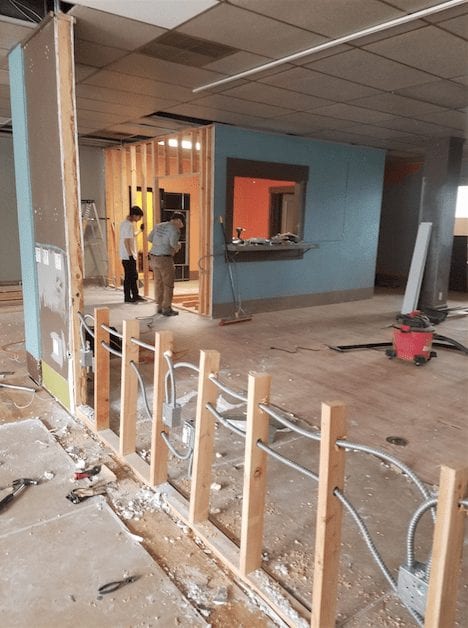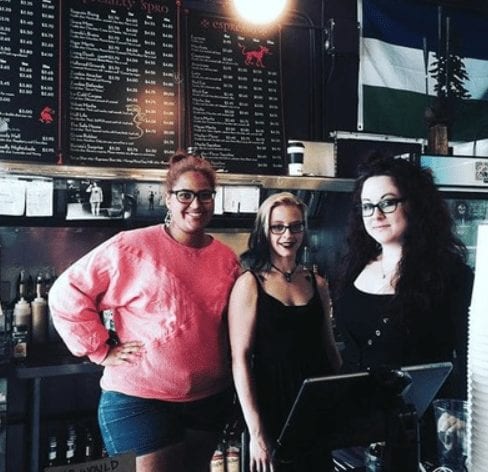
Olympia, Wash.’s beloved, eclectic coffee haven is becoming a cooperative.
BY MARK VAN STREEFKERK
BARISTA MAGAZINE ONLINE
After a couple years of discussion and hard work, Burial Grounds Coffee in Olympia, Wash., has officially transitioned into Burial Grounds Coffee Collective. The change comes in conjunction with moving into a new space, a downtown location that requires a build-out to accommodate Burial Grounds and its two sister businesses.
Becoming a collective was an intuitive next step for the café. “We’d always been kind of collectively run,” says Colin Bartlett, worker-owner. “Everyone had a voice in how things were going to a degree. That’s always been a value of [former owner Mara Curry’s] to sort of lead from below.”

A Refuge for “Weirdos”
Mara Curry and a group of friends who moved from Tucson, Ariz., to Olympia founded Burial Grounds in 2010. She took the name from a goth-themed café in Sophie Campbell’s Wet Moon graphic novels. “We got the permission from Sophie to use the name, and like that other Burial Grounds, they wanted to make a place that was a shelter and refuge for weird, queer, artsy people. Kind of a rookery for artists and other creative types,” Colin says.
“I moved here without a community and that’s kind of what I wanted to try and build,” says Mara. “I always wanted it to feel like a cooperative place you could come and feel secure at, and I wanted my employees to feel that way.” Because of its egalitarian ethos and heart for the community, including a caffe sospeso (Italian for “suspended coffee,” popularly known as pay-it-forward coffee) program, it wasn’t long before talks of collectivizing became more frequent.

Collective vs. Cooperative
Burial Grounds is technically a cooperative, meaning a board of directors is elected by workers who have a stake in the business. However, they have elected all eight of their worker-owners to the board of directors, so while it’s a cooperative in name, Burial Grounds functions as a collective.
Here’s a very simplified summary of their path to collectivizing: As with most labor organizing, the Burial Grounds staff started by building rapport and solidarity among themselves, eventually talking about their hopes and aspirations if they owned the café. They reached out to the Northwest Cooperative Development Center (NWCDC) for help and support with the process. Once they talked over buying the business from Mara, they drafted a memorandum of understanding, which detailed the shared goals of the group and the decision-making process during the transition. Then they started fundraising; Colin estimates they raised a few thousand dollars for lawyer and document fees. Mara provided Burial Grounds’ financial records so the new collective could detail the buyout and business plan. This part took “hours and hours of spreadsheets,” Colin says.

Next, Burial Grounds Coffee Collective became a legal, state-recognized entity, and opened a business account at a local credit union. They started drafting the conversion, or buyout, with help from the NWCDC, and simultaneously created their operating agreement, the “constitution” their cooperative model is based on. Once all the pieces aligned, and they had the necessary funds raised to buy the business, the transfer and signing over was officially recognized, and Burial Grounds Coffee became Burial Grounds Coffee Collective.
In the meantime, the collective has been hard at work building out their new location at 601 Capitol Way South. The new space will house Todai Yoga, a studio run by former Burial Grounds employee Ashley Crute, and Rogue Tea, run by Ashley’s partner Evan Hayes. Throughout the collectivizing process, Mara has moved into an advisor role, and plans to step away once the new café is established.

When thinking about how other café owners can respond if their workers start to organize, Mara says, “Participate. Be part of it. Take a step back and really try and figure out where people are coming from.” When I suggest that other café owners might be resistant to collectivizing, she says, “I really feel like [they] shouldn’t be. I feel like a lot of times employees, whether you’re friends or not, they’re untapped sources of wisdom, because they’re working harder than you are some days.”

ABOUT THE AUTHOR
Mark Van Streefkerk is Barista Magazine’s social media content developer and a frequent contributor. He is also a freelance writer, social media manager, and novelist based out of Seattle. If Mark isn’t writing, he’s probably biking to his favorite vegan restaurant. Find out more on his website.
